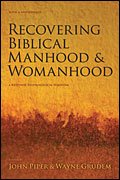An Interview with World Magazine's Editor, Marvin Olasky
David Wegener
Marvin Olasky is a Professor of Journalism at the University of Texas at Austin, editor of World magazine, and a Senior Fellow of The Acton Institute. He played a key role in the debate over gender-neutral Bible translation and is a strong supporter of CBMW.
JBMW: Tell us your background and how you became a Christian.
I grew up Jewish in Massachusetts, barmitzvahed at 13, atheist at 14. Through my atheism, I moved further and further to the political left, so that I had become a Marxist by the time I graduated from Yale University in 1971. After graduation, I worked for the Boston Globe and also joined the Communist party. Then I went to graduate school at the University of Michigan in 1973.
During all this time I was fairly convinced and content in my atheism and communism, but God, for His own peculiar reasons, decided not to leave me there. In November of 1973, I came to believe in a God of some kind and this led me to resign from the communist party. For my graduate work, I had to have a good reading knowledge of a foreign language. I chose Russian since I had studied it at Yale in order to be able to cozy up to my Soviet Big Brothers. One night, through a strange providence of God, I was reading the New Testament in Russian in my room. I had never read the Bible before and as I did so, I kept saying to myself, "Why this is true, and that's true, and that... " and so forth. God also used my reading of the sermons of John Cotton, Thomas Hooker and Cotton Mather for an Early American Literature course, to draw me to Himself. I was courting and marrying Susan during this time. She was from a very liberal Methodist background and hadn't gone to church for a number of years, but we were both coming to a better understanding of the gospel. After we got married, we moved to San Diego where I had a oneyear teaching contract at San Diego State University. We decided it was time to see what a church was like.
After all this time, the only Christians I knew were the dead ones from 300 years ago whose sermons I had read in graduate school, so we got out the yellow pages, and looked under "Churches". I knew the Baptists were a big denomination and I'd read about baptism in the New Testament. Under Baptists there was Conservative Baptist and, given my political past, I didn't want to have anything to do with liberals. The Conservative Baptist Church of La Mesa was a few blocks from our apartment so that's where we went. We heard sermons every week that were very basic "You must be born again" sermons, but that was actually what we needed.
One day the elderly minister of visitation came over to the apartment and said, "Well, you believe this stuff, don't you?" And I said, "Well, I guess I do." He said, "Well, you should join up." And I said, "Well, I guess I should." And so, right after that we were baptized and joined the church.
Where did you go from there?
After my year at San Diego State, I worked for a group in Long Beach called the Christian Anti-Communism Crusade. It had been big during the 50's but was less significant at this time. I went around the country giving a talk called, "From Judaism to Atheism to Communism to Christ." However, after a few months with that organization I began to be uncomfortable with certain emphases of the group.
During this time, I was studying Romans and reading John Calvin, J.I. Packer, Francis Schaeffer, and Louis Berkhof. This is what helped me develop a Christian view of the world. I left the Christian Anti-Communist Crusade and eventually got a good job working at the Dupont Company in Delaware, writing speeches for the corporate executives.
We moved to Austin in 1983, where I became a professor at the University of Texas in the Journalism Department. We have four children-the first three were born to us and the fourth we adopted-and they are all great blessings to us.
I've been writing a lot of books in the process. One was a history of abortion in America. Another that has gotten more attention is, The Tragedy of American Compassion, which is a history of fighting poverty in America. It was published in 1992, but really caught on in 1995 after Newt Gingrich read it and started talking about it a lot and telling all the congressmen to read it. I took a leave of absence in 1995-96 and spent time in Washington and giving talks on welfare reform around the country. God blessed this work and it all came to fruition in August 1996, when President Clinton, under duress, signed the Welfare Reform bill. It has been an enormous success. The welfare rolls have decreased by about 40-50%, and lots of people have found jobs, realizing God's purpose in their lives.
I have a new book out called, The American Leadership Tradition: Moral Vision from Washington to Clinton. It gives chapter-biographies of 13 American leaders, mostly presidents. There has been more division over this book than just about any other, because it asserts that private actions have public consequences, and shows this historically in the lives of a number of leaders. There was a review in the New York Times and twice the reviewer said that I "lacked a sophisticated public theology."
I gather this means I think the Ten Commandments are commandments, not suggestions. In a way, this is true. I lack a sophisticated public theology. I was baptized in the Conservative Baptist Church of La Mesa, which certainly lacks a sophisticated public theology. When it comes to Bible translations, I lack a sophisticated public theology. I think the Bible is God's Word and you should translate it accurately, and that is unsophisticated. So all through my life I see my "lack of a sophisticated public theology."
Where do you see the influence of feminism in our culture?
In the 1950s, people were moving to the suburbs. You also had the introduction of a number of labor-saving devices in the home. Add to this the fact that the federal government was expanding its social welfare programs. Previously this work had been done by community and church-based organizations, staffed largely by female volunteers. Now it was being done by government-paid professionals and consequently many of these organizations shriveled up and died. One result was a lot of lonely women, removed from their roots, who didn't have a productive way to spend their time.
Betty Friedan wrote The Feminine Mystique out of this context. The average housewife, she said, feels trapped, bored, and unhappy. Her answer was for women to join the work force. This they have done, with dire consequences for society as a whole.
Now many women believe they have to justify staying at home rather than being out in the work place. They have been taught that anyone can raise their kids, so they put them in day care. And you can always find a convenient study to say it's not going to make any difference. We have the expectation that government should make possible any choice we as parents make. Certainly, feminism has led to great sexual irresponsibility. We have aborted 38 million unborn children since Roe v. Wade. Those are victims of feminism. Children have been marginalized. You have to have quality time with children, but you can't plan quality time. Sometimes it comes out of the blue. So the only way to have quality time with children is to have quantity time.
Of course, feminism has led to increased poverty among women. No-fault divorce is one of the early products of feminism, but it's been largely to the advantage of men-just like abortion. Abortion and no-fault divorce have given men the green light to be irresponsible and have impoverished many women.
The time crunch that many women feel is a result of feminism. Women feel very guilty unless they're doing all these things.
From my study of the history of poverty-fighting in America, I found that it was basically women who ran the charitable enterprises. Men were involved, but it was essentially women who had the time to volunteer. They had the opportunity to do that and it was deemed a vitally important social function. And now they don't have the time because so many of them work.
There has also been a loss of community. We see that in neighborhoods, where's no one there during the day. But we also see it in families. I do most of the traveling in our family, but sometimes Susan has to be away. When she's not here there is a certain social glue that's lost. We're more like a pack of wolves. When women are removed from their families for long periods of time the family is weakened. And when families become unglued, the culture becomes unglued.
How has feminism impacted our understanding of compassion?
It has contributed to a change in our understanding of compassion. Compassion is tough, it's not wimpy at all. We used to regard showing compassion for someone as suffering with them, as coming alongside them and working with them. Now we view it as feeling sorry for them. This change in understanding has had tremendously negative results. Showing compassion used to be demonstrated by coming alongside the poor and trying to communicate God's purpose for them, helping them develop a work ethic and realize that God has given us six days in which we are to do our work. Now we sit around and feel each other's pain-and maybe we'll write a check. Showing compassion is actually very hard work.
How has feminism influenced the church?
Feminism has influenced our understanding of compassion. We need to return to the older understanding of that term. It has also impacted our practice of church discipline -or lack of practice, as the case may be.
The whole question of society and the church comes in here. God does not forbid women to be leaders in society, generally speaking, but when that occurs it's usually because of the abdication of men. As in the situation of Deborah and Barak, there's a certain shame attached to it. would vote for a woman for the presidency, in some situations, but again, there's a certain shame attached. Why don't you have a man who's able to step forward? God's Word says very plainly that an elder is to be a man; he is to be the husband of one wife. It's harder when there are women who are CEO's of companies and so forth. Still, it comes down to the question of "Do we trust God and do we believe that He has wisdom that we don't have?"
This leads right into the whole question of the language of the Scriptures. Feminists want to rewrite the Bible so that it won't say that an elder must be the husband of one wife. Right now our English translations clearly say this, but if the feminists have their way, our translations of Scripture won't. So future generations will scratch their heads and say, "Gee, how can anyone be so silly as to believe that only men could be elders?" That's just one of the dangers you encounter once you start rewriting Scripture and misquoting God.
What are some of the issues that evangelical Christians will be facing in the next few decades?
The influence of feminism will continue to be very large. Some of the radical impulses of late 60's-70's feminism have been tamed, but feminism, in its basic liberal form, has become mainstream. I see this in my students. The women expect to go out and work and they regard child-bearing as secondary. They expect to take any leadership position offered to them, whether in society or in the church.
Then there is the whole question of marriage. Is marriage between one man and one woman? The Vermont legislature evidently is poised to approve of so-called homosexual marriages. This will be very hard to fight. If two men may properly be joined in marriage (or two women), where will we stop? Why not two women joined in marriage with one man? Why not foursomes or fivesomes?
I think the whole question of cloning is going to be important. What do we define as human life? How does that continue? Down the road-and this sounds almost like science-fiction-one can even see a certain merger of humans with computers in some way. That's still a long way off but you can see it coming, unless God decides to tear down this Tower of Babel.
People have much easier access to pornography these days. In the 50's and 60's one used to have to go to the bad neighborhoods to gain access to this stuff. Then you had to go to the corner drugstore. Now it's just a few computer keys away; people will find it increasingly difficult to say "no" to pornography. Again, this is all God's grace that we say "no" at all, but it's harder when it becomes so easy to access.
There is also the issue of tolerance. For some, it is our key virtue-except when it comes to tolerating smoking or something like that. Christians are going to be looked upon as intolerant people. I can see a time coming when the free-speech rights of Christians will be removed whenever we exhibit intolerance, such as intolerance towards homosexuality. That's going to be an interesting constitutional question.
Source:
http://www.cbmw.org/Journal/Vol-3-No-4/The-Impact-of-Feminism






No comments:
Post a Comment